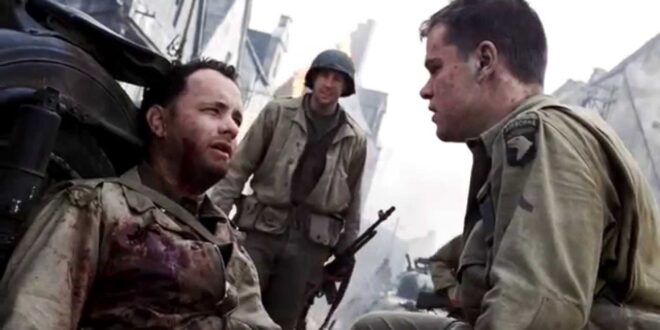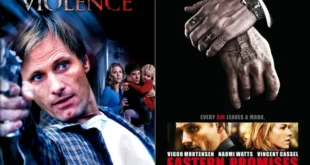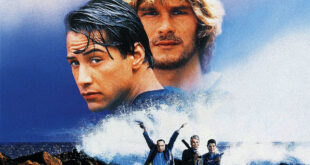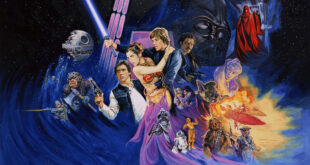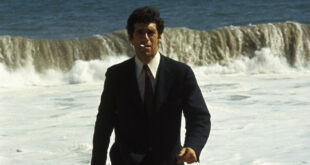I was sitting around the other day thinking about what to write about next and decided I have been too nice. You’ll notice no reviews on this website where I out and out-crush a film or post any controversial opinions. It’s not good to hold onto one’s negativity or troll-like behavior inside, so allow me to poke the beast. What exactly makes a film overrated? The concept of overrated films is multifaceted and influenced by various factors, including hype, personal taste, originality, cultural influences, and fan culture. You might have heard Citizen Kane was the most excellent film ever made, yet you were left unmoved and bored when you watched it. Does that mean perhaps the viewer didn’t catch the greater meaning of Rosebud? Perhaps. Maybe they did and were still left subdued. Therefore, a film may be considered overrated if it receives widespread acclaim but fails to connect with a particular individual’s preferences or tastes. Also, films in the cultural zeitgeist might temp one to develop feelings of backlash toward something universally considered excellent.
Ultimately, these are subjective thoughts. The films I’m about to list don’t necessarily mean I think all of them are unworthy; the final product doesn’t match the expectation. Perhaps I might feel the film’s negative aspects aren’t brought up enough. There might even be political considerations in play, much to the sigh of many. But when considering those factors in the previous paragraph, you build the rules for your list of overrated movies. Public perception is a significant factor in my analysis. However, I try to remember that everyone has their taste in movies. What I may find overrated, others may genuinely enjoy. At the same time, you’re mistaken. I’m a millennial, and our generation tends to overrate things just because we grew up with them. Oddly enough, one could accuse me of that as most of my Unsung Cinema articles were on movies from the 90s and 00s when I was growing up. There are also movies from this period I like calling out.
Forrest Gump (1994)
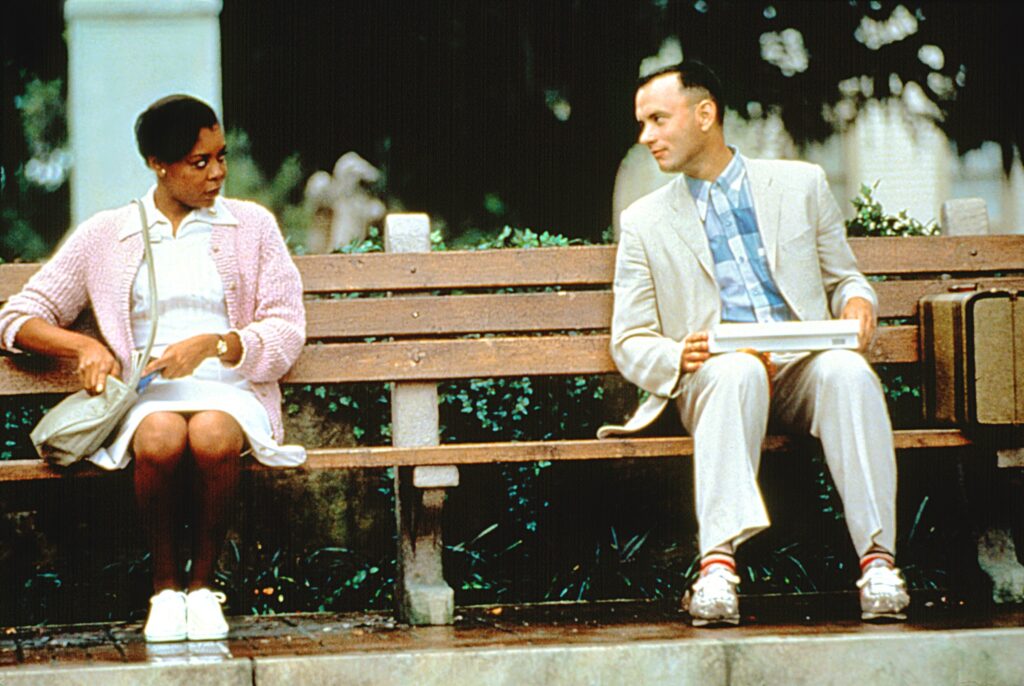
As a kid, I loved this movie. Who didn’t? Forrest Gump seemed fun. Not only was there a historical aspect of recent American history that I was attracted to but it’s one of those films that doesn’t do it for me anymore. I don’t think Zemeckis has any sinister intentions with Forrest Gump, but years later, it comes off as corny, simplistic, and problematic—a politically awkward and naive film. It’s a film where anyone who challenges the system is suspect, while the mentally disabled Forrest is mainly used as comic fodder and an odd symbol of apolitical values. He experiences no change throughout the movie. There’s not much conflict for Forrest in the film at all. In America, that means conservative values. The view of the American Dream I don’t think plays as well thirty years later.
Saving Private Ryan (1998)
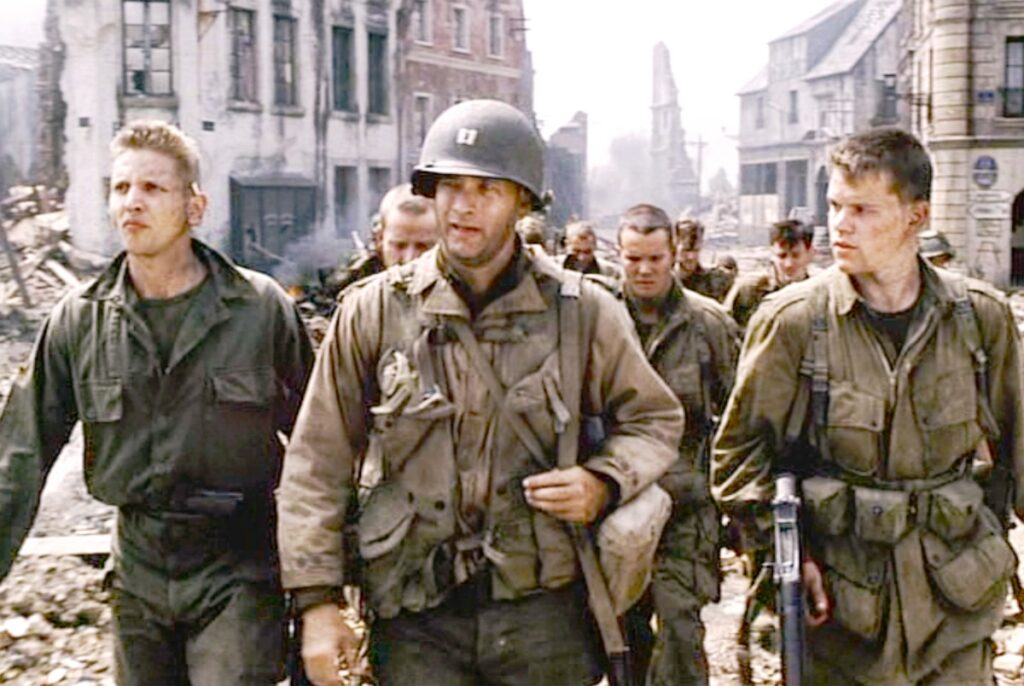
Everyone mindlessly loves this movie. You’ll rarely hear someone say they don’t like it, but I don’t. The opening twenty minutes are impressive from a filmmaking standpoint. Despite that, there’s a flaw in focusing only on the Americans on D-Day. Saving Private Ryan presents a predominantly American view of the war, minimizing the roles of other Allied nations in the D-Day invasion and subsequent battles. You’ll also hear this film showing the horrors of war. It does that. Unfortunately, it’s also very much a simplistic pro-war film. The main narrative of a small group of soldiers undertaking a heroic mission could be seen as glamorizing the sacrifice and courage associated with war. Every character is a type like Upham, who initially is timid towards war, but by the end, he’s a killing machine! The direction by Spielberg elevates Robert Rodat’s trite screenplay, but I don’t think it has anything profound to say about war or sacrifice. It’s just catnip for stroking it to World War II and “The Greatest Generation.” For as realistic about war as it’s supposed to be, the plot is wholly fabricated hokum. It also doesn’t feel like an anti-war film. There’s no doubt this is a good war. There is no doubt that pro-war sentiment is still high in this country because of simplistic films like Saving Private Ryan that exploit the horrors of war for a pro-just cause. In the end, America and America alone won World War II.
Schindler’s List (1993)
I don’t hate Steven Spielberg overall (in fact, I’ve done two Unsung Cinema articles on his films). Still, part of the problem with Spielberg and his attempts at “serious” filmmaking is that he sees everything through the lens of movie magic. His films are sentimental and uplifting mostly. There’s nothing wrong with that, and I don’t find it appropriate for a movie about the Holocaust, perhaps the most devastating human crime of all time. There’s certainly nothing sinister behind Spielberg’s intentions, and there are catastrophic scenes of horror and violence. Yet, it’s a Holocaust film where the “hero” is a member of the Nazi party! The main focus of the film, indeed, is the Nazi characters. We see the horrors perpetrated against Jews. We get a character played by Ben Kingsley that has some development, but mostly it’s a Holocaust film where the Jews are in the background. In reality, Oskar Schindler was a more morally ambiguous man than portrayed in the movie. So this is another example of a film everyone automatically loves, but upon further examination, there’s more to pick apart.
The Shawshank Redemption (1994)
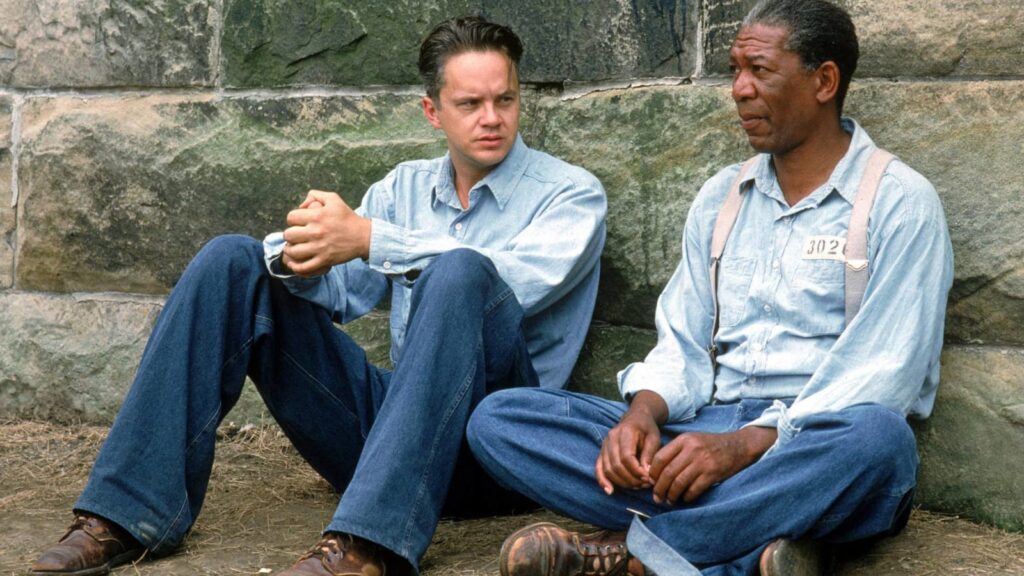
The number one film of all time according to IMDb users. For over thirty years, a universally loved and adored film, especially by male moviegoers. Yet, I was never terribly impressed. Sure, the performances are lovely, and there are individual moments of power, but overall the film is too distant and slow to be anything remarkable. There are noble themes of courage, hope, and redemption, but overall the film paints a glossy portrayal of prison life. The saving in the movie lacks a certain kind of nuance. Everything works out so quickly for Andy despite wrongfully being accused of murder. The sense of unity and support among the prisoners, as well as Andy Dufresne’s ability to navigate the system, are seen as somewhat romanticized. This portrayal may create a distorted view of prison life, downplaying the inherent difficulties and dehumanizing aspects many incarcerated individuals face. Real-life redemption stories often involve complex struggles, setbacks, and internal conflicts not fully addressed in the film. The portrayal of redemption as a linear and easily achievable journey can be seen as oversimplified and lacking depth. The pacing is an issue too. It feels like a slog to get through.
Top Gun: Maverick (2022)

Look, I get that this movie took everyone by surprise and was better than a Top Gun sequel set 36 years after the original has any right to be, but Best Picture nominated? 96% on Rotten Tomatoes? For this? If it weren’t for the sheer insanity of Tom Cruise and his psychotic dedication to delivering practical stunts (which admittedly are thrilling), and a nice quiet scene featuring Val Kilmer (the best scene), this would offer nothing new, especially in terms of plot and rah yay military-industrial complex that we haven’t seen before. Not to mention it’s predictable and absurd. Now sure, is that particularly surprising? No, but this was one of the most celebrated films in 2022. Nostalgia still has a potent effect on people.
The Notebook (2004)
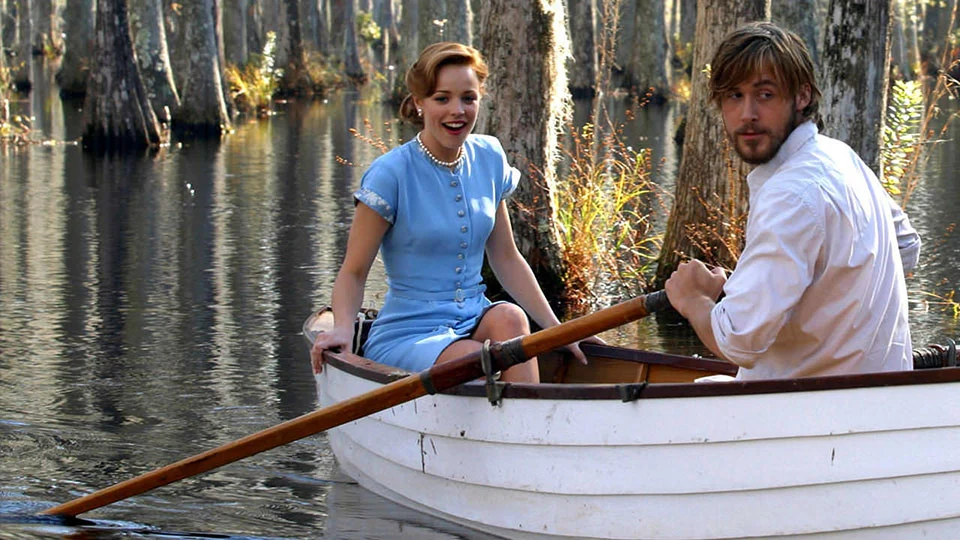
Growing up in high school, there wasn’t a female I knew that didn’t automatically love The Notebook, a film with zero chemistry or romance. The film is also insanely manipulative to the point of an absolute eye roll like having one of the main characters have dementia purely as a narrative device. Correct me if I’m wrong, but doesn’t a romantic movie have to be romantic? There’s nothing but arguing it’s the most toxic relationship ever, but apparently, this is some romance classic. Nonsense.
The Departed (2006)
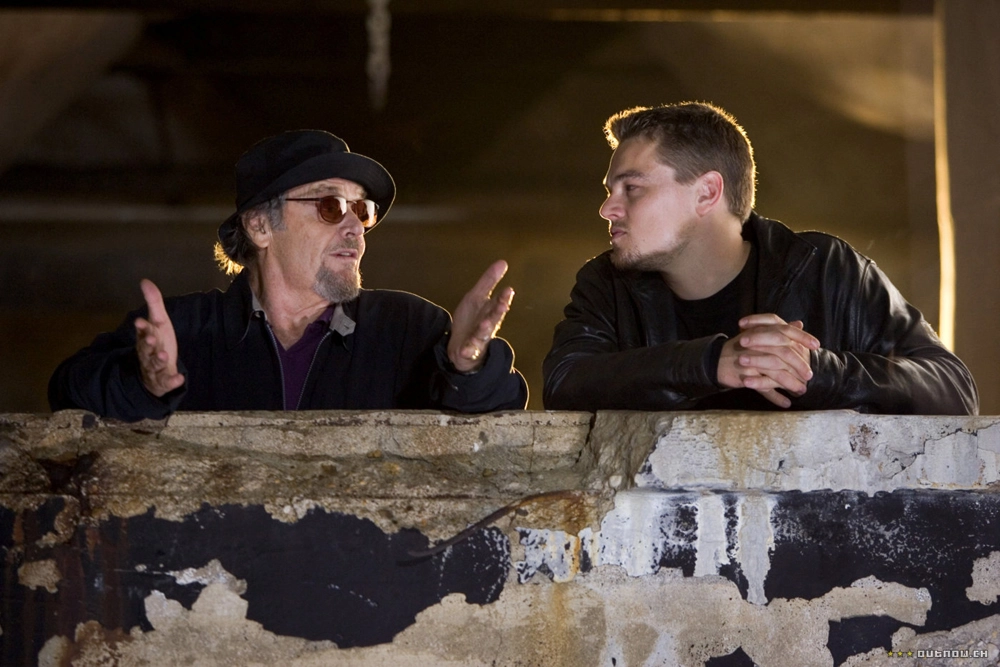
I hate to do it to you, Marty. I’ve always felt no connection to this film whatsoever. Undoubtedly, it’s well-made and entertaining, but it has too much going on. Scorsese is no stranger to long movies, and I love something like The Wolf of Wall Street at three hours, but the pacing in this felt needless sometimes. The Departed is good. I protest the idea that this is the film Marty finally won his Oscar for. He seems to be at odds with William Monahan’s twisty and turny screenplay that feels inferior to the Infernal Affairs trilogy from Hong Kong.
Indiana Jones and The Last Crusade (1989)
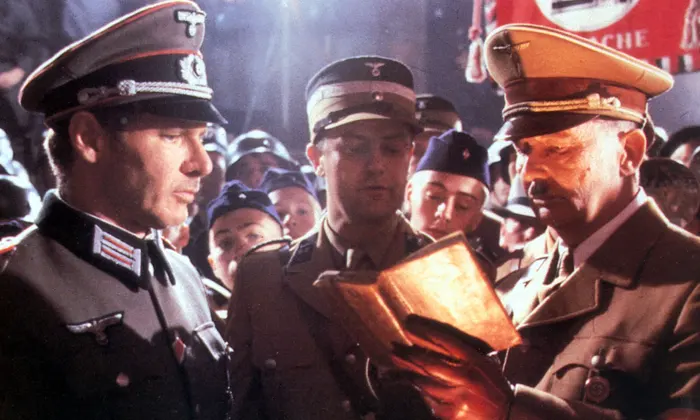
I love Temple of Doom and wrote extensively about it for Unsung Cinema. I feel exactly the opposite about The Last Crusade, which is repetitive and underwhelming. Redundant in the sense we’re repeating Raiders of the Lost Ark here with Nazi villains, only the plot this time is not as engaging. There’s also a scene I find inappropriate later in the film where Indy bumps into Hitler, and it’s played for laughs. I know what Spielberg was trying to do, but it just comes across with a giant thud as it humanizes and even trivializes one of history’s most notorious figures. Unlike Temple of Doom, which went in a radically different direction, the story takes no chances. Here Lucas and Spielberg are merely trying to recapture the feeling of Raiders. I enjoyed the chemistry between Connery and Ford, but that energy isn’t enough to overcome the fact The Last Crusade doesn’t have the same power as the first two. The film is sorely lacking a compelling villain as well. Raiders had Belloq, and Temple of Doom had Mola Ram. The Last Crusade has Walter Donovan.
The Boondock Saints (1999)

This is the one film on the list, along with my hatred of The Passion, that I think is terrible, and I don’t understand the love this film gets from people. Keep in mind; they are not movie critics but fans. This is a film that inexplicably has a strong cult following. I remember in college seeing posters of this all over dorm rooms. A more interesting film is the documentary on the making of this film called Overnight. I think it’s a sloppy, amateur-looking film, with the only redeeming quality being Willem Dafoe going nuts.
The Marvel Cinematic Universe (2008-Present)
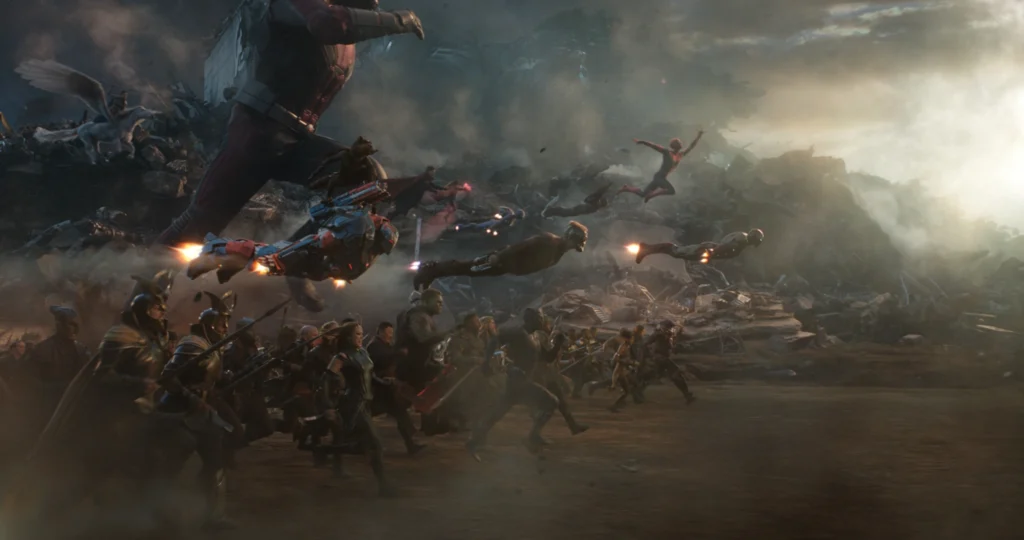
I think there are entertaining films in the series. I particularly liked the first Avengers. I thought Joss Whedon did an excellent job of balancing the characters. Over time though, these films have become formulaic and visionless. Don’t get me wrong, I was all on board when I was younger, and indeed, I respond more to the earlier movies than the giant behemoth of nothingness it is now. Stakes are meaningless. Movies are indistinguishable from one another. Everything is either retconned, reversed, or in a multiverse. Some interesting themes are explored in many films, but overall, the politics are borderline jingoistic. Positive portrayals of US hegemony in the world abound, with a positive portrayal of a white CIA officer in a movie called Black Panther. It’s all become exhaustingly convoluted and oversaturated. MCU-related films used to be an event. Now it’s like homework to keep up. Disney destroys the novelty of all once-great things.
 Movie Finatics The Place for Movie Lovers
Movie Finatics The Place for Movie Lovers
